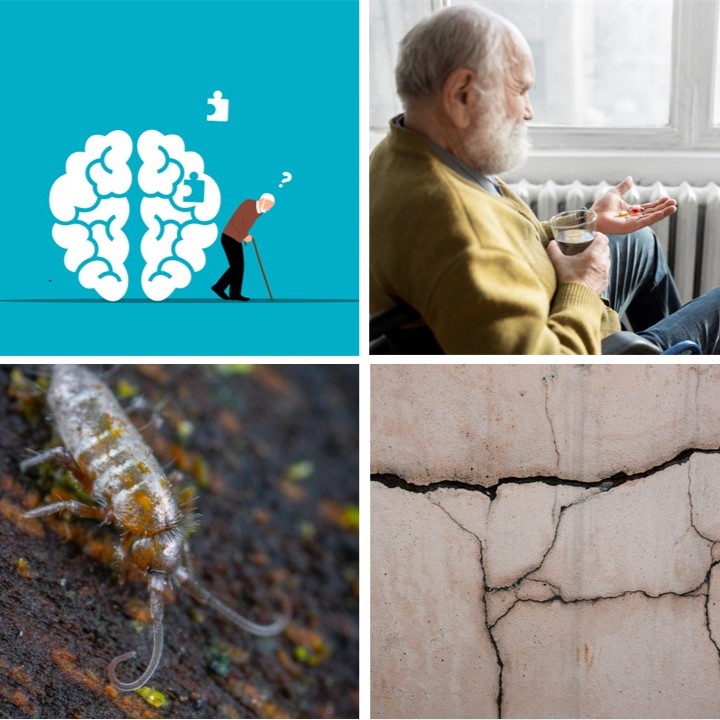Translational Medicine – News
Long Covid treatment: Researchers study the potential benefits of fasting
Long Covid occurs in up to 10% of cases and can significantly affect daily activities. Its duration and severity vary widely, with symptoms that include fatigue, shortness of breath, pain and cognitive impairment.
“The complexity of the diverse symptoms involving multiple organs often make current treatment inadequate and create the need for alternative therapeutic solutions,” details Prof. Jochen Schneider, head of the Medical Translational Research group at the LCSB. “Since the gut–brain axis is strongly involved in the pathways affected by long COVID, fasting diets are emerging as a potentially effective treatment.”
Caloric restriction and periodic fasting target inflammatory processes and gut microbiome imbalance, two hallmarks of the syndrome. This is why FastCoV, an interdisciplinary research project that brings together the expertise of several research institutions and hospitals in Luxembourg and Germany, investigates the effect of fasting as treatment option for long COVID.
Digital medical devices: training innovators in Luxembourg and Spain
How do Digital Medical Devices (DMD) change Healthcare? How do we build them, and how do they reach patients and healthcare professionals? These were some of the key questions of the Digital Medical Devices summer school 2024 which took place in July on Belval Campus. Seventy participants from all over the world attended the second edition of this popular summer school and spent the week learning about DMDs: from medical-grade apps on your smartphone to wearable sensors in your watch or on your shoes, supporting home-monitoring and clinical decision.
DMDs have an important role to play in healthcare as they enable data collection, empower patients, and facilitate their interactions with medical professionals. Always keeping the patients’ needs in mind, participants explored what these new technologies can do for users and medical professionals and what challenges should be tackled to generate impact and value.
Funded by the European Union, the summer school was co-created by the University of Luxembourg and the IESE business school of the University of Navarra, with the support of Roche. It combines the scientific approach of the Digital Medicine group at the Luxembourg Centre for Systems Biomedicine (LCSB) and the entrepreneurial expertise of one of the top business schools in the world, while ensuring links to the industry and the regulatory bodies.
Luxembourg’s PD research joins study sponsored by Michael J. Fox Foundation
The National Centre of Excellence in Research on Parkinson’s disease (NCER-PD), Luxembourg’s flagship initiative, has joined the Parkinson’s Progression Markers Initiative (PPMI), a landmark observational clinical study sponsored by the Michael J. Fox Foundation for Parkinson’s Research.
The news was announced by the five partner organisations, the Luxembourg Institute of Health (LIH), the Centre Hospitalier de Luxembourg (CHL), the University’s Luxembourg Centre for Systems Biomedicine (LCSB), the Laboratoire National de Santé (LNS) and Les Hôpitaux Robert Schuman (HRS).
Launched in 2010, PPMI is widely acknowledged as the most ambitious and impactful initiative in research on Parkinson’s disease. It aims to develop biological markers of Parkinson’s disease risk, onset and progression by establishing a large collection of clinical, imaging and biological samples in multiple cohorts.
Monitoring multiple sclerosis through “gamification”
The Luxembourg Institute of Health (LIH), together with the Luxembourg Institute of Science and Technology (LIST), will be participating in an international multi-site clinical trial aiming to test and validate a novel neurotechnology developed by the Luxembourg based company Myelin-H for the remote monitoring and neurorehabilitation of Multiple Sclerosis.
Myelin-H has developed a novel “software-as-medical-device” for the remote home-based monitoring and neurorehabilitation of MS patients. The device is a non-invasive software platform that combines mobile neuroscience-based cognitive games, a wearable visor-like brain-computer interface sensor, a machine learning engine for real-time data interpretation, and a real-time clinical dashboard.
The LIH will assist Myelin-H with the development of the protocol, regulatory submissions, as well as with the methodology and study design. This ambitious venture will gather clinical centres from the UK, the US, Australia, Luxembourg, Belgium, the Netherlands and Italy, in order to test Myelin-H’s proprietary software on over 150 patients.
Research Luxembourg Breakthrough to Enhance Parkinson’s Disease Detection
In a ground-breaking study published in “Nature Communications”, scientists from the Allergy and Clinical Immunology Research Team of the Luxembourg Institute of Health (LIH) Department of Infection and Immunity and the Transversal Translational Medicine of LIH, in collaboration with the Luxembourg Centre for Systems Biomedicine (LCSB) of the University of Luxembourg, have unlocked a crucial key to early Parkinson’s disease diagnosis. Their research introduces non-invasive cellular immune biomarkers that could redefine how we identify and address this complex neurodegenerative disease in the near future.
A team of researchers from the Luxembourg Institute of Health (LIH) together with the LCSB have addressed this challenge head-on, providing a novel, easily-accessible, validated, early-window biomarker in the blood that could aid in the diagnosis and impact the prognosis of PD. The work establishes a clear link between disturbances in the peripheral immune system and PD, which appears to be particularly relevant in the early stages of the disease. Their discovery, recently published (doi.org/10.1038/s41467-023-43053-0), marks a major step forward towards the development of better clinical diagnostic methods: by simply analysing circulating immune cells in a tube of a patient’s blood samples, this innovative technique could provide highly precise answers within around five hours.
Online survey: Towards an electronic diary for people with Parkinson’s
The MyPD study aims to understand how people with Parkinson’s perceive their disease, how they manage their health on a day-to-day basis and to what extent they use new technologies.
If you are a person living with Parkinson’s disease or an informal caregiver (e.g. spouse, family member, friend etc.), this survey is for you! You will be asked questions about your socio-demographic information, the symptoms you experience, your daily routines and your perspective towards using technology for health purposes such as computer, smartphone, or mobile applications.
With your participation in this study, you will help researchers to gain insight into the routines of people with Parkinson’s, the disease management strategies they use and the support they receive daily from their family and friends. You will also advance knowledge about technologies currently used by people with Parkinson’s disease and help scientists design an eDiary application that could further support them.
Colive Cancer: a survey for patients to improve cancer care in Luxembourg
The Luxembourg Institute of Health (LIH), in collaboration with the Ministry of Health as part of the Second National Cancer Plan, has introduced Colive Cancer, a nationwide initiative in which current and former cancer patients can share their experiences to improve cancer care in the country.
Cancer is the leading cause of death for men and the second leading for women. Currently there are estimated to be approximately 18000 people living with cancer in Luxembourg, almost 3% of the population, making the disease a priority for the Ministry of Health and the Luxembourgish biomedical research community.
The Second National Cancer Plan, initiated in 2020, is focused on translational oncology, digitalization of data, and working with patients rather than just for or about them. Colive Cancer aims to collect the experience and feedback of patients, in order to evaluate the country’s care, improve cancer diagnosis and treatment. If you are a cancer patient, share your experience and help to improve cancer care in Luxembourg.




